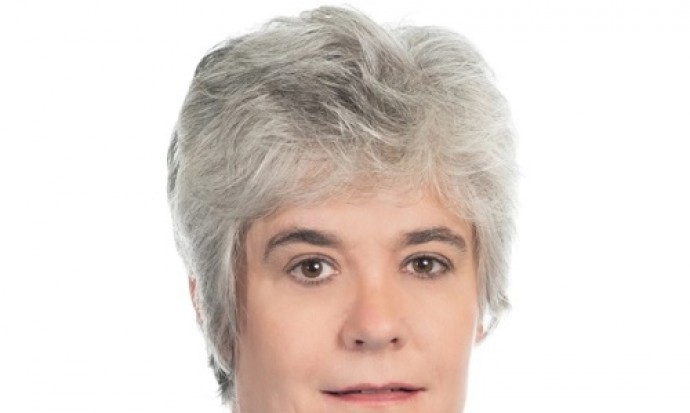
Professor Liesl Dyson studied Meteorology at the University of Pretoria (UP), which is the only university in South Africa that offers a degree in Meteorology that complies with the World Meteorology Organisation’s training standards. Prof Dyson has been doing research at UP for 25 years, and says “the beauty of clouds inspired me to study meteorology”.
As an associate professor in Meteorology in the Department of Geography, Geoinformatics and Meteorology, research is part of what she does. The research that she and her students are involved in deals with understanding the character of severe weather phenomena, investigating the development mechanisms of these phenomena and finding ways to better predict these events. As for how her research contributes to the betterment of the world, she says that timeous warnings of severe weather could save lives and property.
Many of the postgraduate students who do research under her supervision are employed at the South African Weather Service.
“Together, we identify which weather phenomena needs further investigation, then set about improving the understanding and forecasting of these,” Prof Dyson explains. “At the moment, there is special emphasis on severe thunderstorms. We investigate thunderstorms by using radar and state-of-the-art numerical weather prediction products. However, other phenomena such as sand/dust storms and snow are also included in our research.”
Prof Dyson collaborates with the Natural Hazard Centre, which statistically analyses the hail data she generates by using numerical weather prediction data and a hail model. The result of this collaboration determines the risk of hail over South Africa.
A highlight for her was being awarded the Water Research Commission’s Knowledge Tree Innovation Award in 2019 for a project entitled ‘The impact of the predictability of continental tropical lows on hydrological modelling: Current state and future projections’. This award celebrates outstanding design, process and product development of innovative technologies. The research investigated and named a specific type of tropical weather system over southern Africa, which they called Africánes. The system is a tropical cyclone-like low-pressure system that develops over Africa and causes very heavy rainfall over the sub-continent.
Two of the master’s students working under her supervision received the prestigious Society of South African Geographers Master’s Bronze Medal, which is awarded to the best geography MSc completed by research dissertation within a given year in South Africa. Christina Liesker received the award in 2022 for her work on supercell identification using weather radar and Markus Geldenhuys in 2019 for his work on the dangerous mountain wave phenomena over the Eastern Cape.
Prof Dyson’s role model in meteorology is Dr Jan Taljaard.
“I had the privilege of working with him for a short while when I was a young forecaster at the South African Weather Bureau. I admire him so much because he was an expert in real weather. It was all about what was going on outside and he instilled in me a hunger to do the same. He authored several papers about synoptic circulation over South Africa, and even though he has long since passed away, these documents are still my go-to papers when I do my own research. I discover new insights every now and again.”
Prof Dyson hopes to play a small part in helping weather forecasters in South Africa to be enthusiastic about the weather, be excellent in their jobs and have the knowledge through training and research to issue forecasts of high quality.
Research shows that in a changing climate, severe weather events are increasing. On short time scales, weather forecasters are responsible for issuing warnings for these events. Prof Dyson’s research matters because it aims to help forecasters to issue such warnings.
She says many young people are interested in the weather because they see and experience the effect of climate change and want to get involved in helping to address arising issues. Others are simply fascinated by tropical cyclones (hurricanes) and tornadoes, and by clouds. She advises school learners that in order to study meteorology, they need to take mathematics and natural science as subjects at school.
“We use Newton’s second law and the laws of thermodynamics to model the atmosphere, and learners need the mathematical tools to do that.”
Prof Dyson loves gardening in her spare time and enjoys outdoors activities with her dogs.
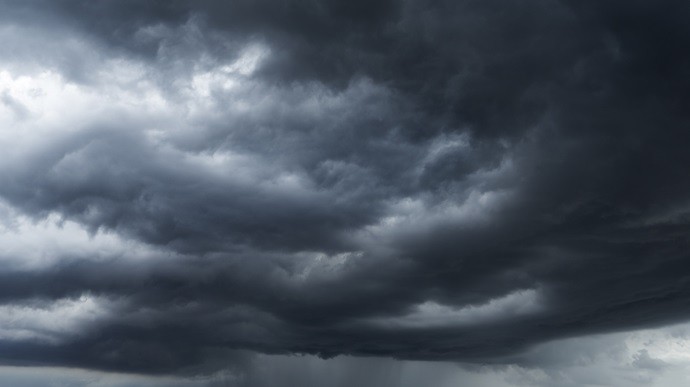 Story
Story
With climate change said to be affecting the intensity of rainfall, experts at the University of Pretoria (UP) have investigated if there are observable changes in the probability of significant to extreme daily rainfall across South Africa.
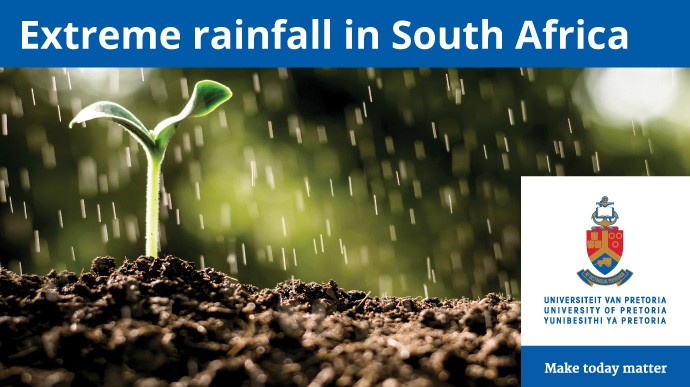 Infographic
Infographic
A UP-led study has found that certain areas in South Africa are likely to experience more extreme rainfall, which is probably a feature of climate change.
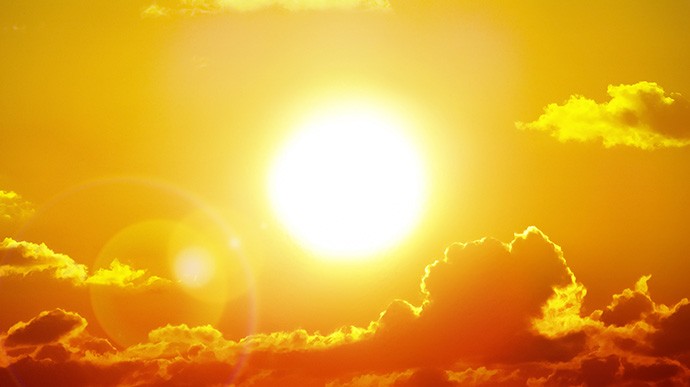 Story
Story
A study by a PhD student at the University of Pretoria’s (UP) Department of Geography, Geoinformatics and Meteorology reveals that South Africa is experiencing more maximum temperature records than expected and that this trend seems to be accelerating.
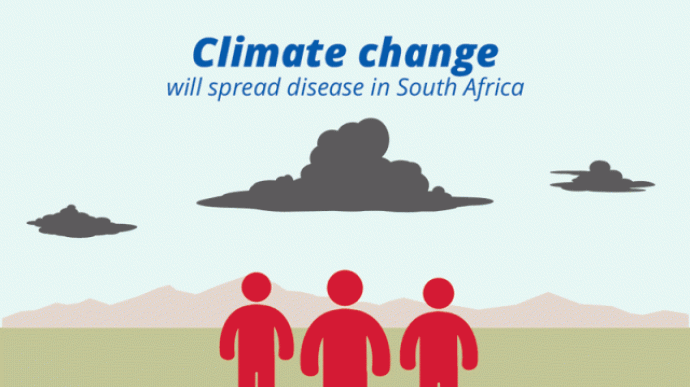 Story
Story
Climate change in South Africa has major health risks associated with it, such as new vector-borne diseases emerging from heavy rainfall, malnutrition from poor food security caused by drought, and respiratory diseases caused by dust storms and air pollution.
 Story
Story
Images and video clips that looked like scenes from the disaster movie Twister were all over social media a few weeks ago when unexpected tornadoes hit the Gauteng province.
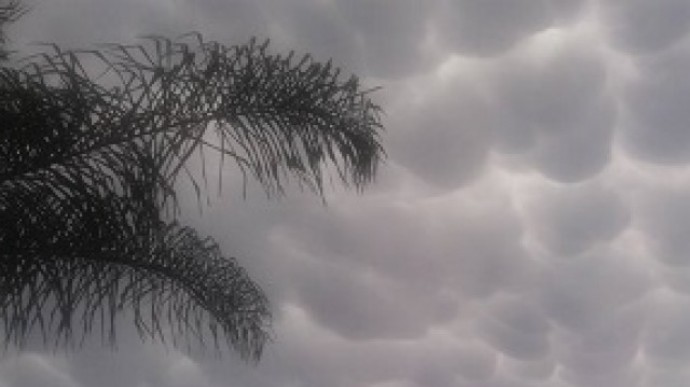 Story
Story
As South Africa lives through one of its hottest and driest summers in years people are scanning the heavens for harbingers of rain. And as we saw again on 16 November last year, thunderstorms can come up suddenly and cause havoc.
Copyright © University of Pretoria 2025. All rights reserved.
Get Social With Us
Download the UP Mobile App